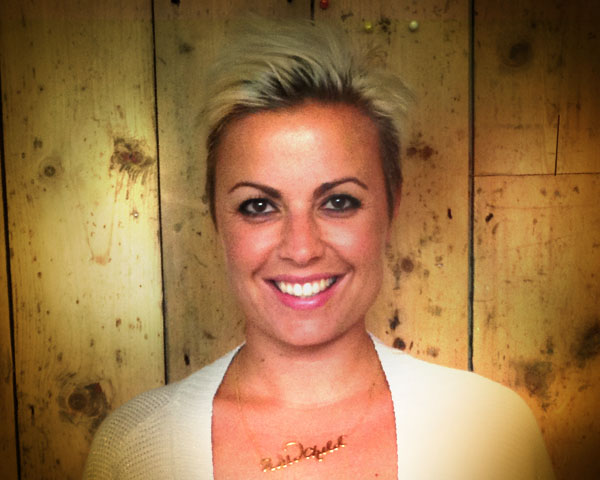
“According to Mattel, women are supermodel thin, have luscious locks, pearly white teeth and pert boobs as well as a successful career. It’s simply not true,” thunders Joanna Davies on the Guardian’s Women in Leadership network, in response to the new Entrepreneur Barbie doll.
Davies, the chief executive of ZAK Media Group, appears to be echoing such icons of female empowerment as Yahoo! chief executive Marissa Meyer, who has admitted in interviews that women can’t have it all. Mayer has admitted that without a fleet of nannies and helpers she would never be able to hold down her job and be a mum at the same time.
I know what you’re thinking: Davies must be a successful businesswoman whose long hours in the office have taken their toll on her skin, hair and waistline. She’s well within her rights to moan about unreasonable expectations of beauty when she’s poured her efforts into building a company instead of pumping iron at the gym.
But the truth is… well, check her out. Sculpted eyebrows, airbrushed skin, bottle-blonde hair. It’s tough to imagine a more conventionally attractive woman. Davies is demonstrably angling for the supermodel thin, luscious locks, pearly white teeth and pert boobs look herself. (I can’t tell for sure if she has nice tits from the photos online, but I’m guessing yes.) So why does she hate good maintenance and healthy self-respect so much in other women?
“The reality is that most entrepreneurs by nature work long hours, often have arduous commutes while in some cases also juggle the demands of parenthood. Trying to add being gorgeous into the bargain is exhausting,” says Jo. Not so exhausting she isn’t giving it a try herself, though, you understand.
At the risk of sounding misogynistic, could this be yet another example of the fabled “do as I say, not as I do” brand of feminism that pulls the drawbridge up behind itself? And why does Davies confuse herself with the young women she imagines she is saving from a lifetime of – shock, horror – exercise and healthy eating?
Check out the weird conflation of herself with a toddler in her conclusion: “Despite being a successful entrepreneur and juggling that with motherhood I don’t feel like a success. Worrying that I don’t spend enough time with my child is one thing, but now I’m adding to the list a fear of not being thin enough or attractive enough.
“So thanks Mattel. More innocent and impressionable young girls growing up to believe that business success means looking like a supermodel is just what we need.”
What I can’t wrap my head around is why Davies isn’t celebrating the death of the air hostess, waitress and stay-at-home mum dolls in favour of a more empowering model that shows young girls that their potential is limited only by their own imaginations and ambition.
That’s what makes me sad about this story: responding to critics who say that Barbie presents outmoded or stereotypical career choices to young girls, the doll’s manufacturers have come up with an imaginative, inspirational new role model. But it’s still not good enough for the social justice warriors.
Joanna Davies telling other women to stop worrying about how they look is like Lindsay Lohan telling you to put the bottle down or Cheryl Cole delivering a lecture about welfare standards for nightclub toilet attendants.
How terrible it is, that young girls should want to look pretty. Women like Davies won’t, it seems, be happy until every little girl is rolling around in the mud, biting off the ears of other children and declaring ambitions to be WWE wrestlers, and every little boy is asking for a tutu at Christmas and shrieking uncontrollably at their nurseries being painted the wrong shade of blue.
Because conforming to oppressive patriarchal expectations of female beauty is only for, uh, grown-ups like Jo Davies.
You have to feel for Mattel, whose executives must have their heads in their hands, wondering how on earth they can ever make this gobby sisterhood happy. But here’s a suggestion: perhaps the company should investigate a Pontificating, Illogical, Patronising Hypocrite Barbie. Davies might find more to identify with in that model.

COMMENTS
Please let us know if you're having issues with commenting.